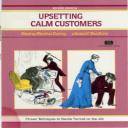Yahoo Answers is shutting down on May 4th, 2021 (Eastern Time) and beginning April 20th, 2021 (Eastern Time) the Yahoo Answers website will be in read-only mode. There will be no changes to other Yahoo properties or services, or your Yahoo account. You can find more information about the Yahoo Answers shutdown and how to download your data on this help page.
Trending News
Sun Tzu's "The Art of War" is considered the be-all end-all technique of warfare in the Ancient World?
But what wars did it help to win?
3 Answers
- Vasco PyjamaLv 61 decade agoFavorite Answer
According to traditional sources, such as the 2nd century BC biography written by Sima Qian, Sun was born in Qi during the Spring and Autumn Period of China (722–481 BC) and became a heroic general for the king of Wu, Helü. His victories then inspired him to write The Art of War. The period was a time of constant war among seven nations (Zhao, Qi, Qin, Chu, Han, Wei and Yan) seeking to control all of China.
The book is not only popular among military theorists, but it has also become increasingly popular among political leaders and those in business management. Despite its title, The Art of War addresses strategy in a broad fashion, touching upon public administration and planning. The text outlines theories of battle but also advocates diplomacy and cultivating relationships with other nations as essential to the health of a state.
Sun's The Art of War has influenced many notable figures. Traditional histories recount that the first emperor of a unified China, Qin Shi Huang, considered the book invaluable in ending the Age of Warring States. The Art of War was introduced in Japan c. AD 760, and the book quickly became popular among Japanese generals. The work also significantly influenced the unification of Japan. Mastery of its teachings was considered a mark of respect among the samurai, and its teachings were both exhorted and exemplified by influential samurai such as Oda Nobunaga, Toyotomi Hideyoshi, and Tokugawa Ieyasu.
Historians popularly recount how French emperor Napoleon studied Sun's military writings and used them to successfully wage war against the rest of Europe. The emperor's disregard for central principles such as attentiveness to temporal conditions is largely credited for his eventual defeat in Russia. Admiral of the Fleet Tōgō Heihachirō, who led Japan's forces to victory against Russia in the Russo-Japanese War, was a avid reader of The Art of War''.
Communist Chinese leader Mao Zedong partially credited his victory over Chiang Kai-shek and the Kuomintang in 1949 to The Art of War. The work strongly influenced Mao's writings about guerrilla warfare, which further influenced communist insurgencies around the world. During the Gulf War in the 1990s, General Norman Schwarzkopf, Jr. practiced Sun's principles of deception, speed, and attacking the enemy's weakness.
Mark McNeilly writes in Sun Tzu and the Art of Modern Warfare that a modern interpretation of Sun and his importance throughout Chinese history is critical in understanding China's push to becoming a superpower in the 21st century. Modern Chinese scholars explicitly rely on historical strategic lessons and The Art of War in developing their theories, seeing a direct relationship between their modern struggles and those of China in Sun's time. There is a great perceived value in Sun's teachings and other traditional Chinese writers, which are used regularly in developing the strategies of the Chinese state and its leaders.
- Anonymous5 years ago
This is a challenging question, and one that has made me curious for quite a while.
- Anonymous5 years ago
it's possible yeah




